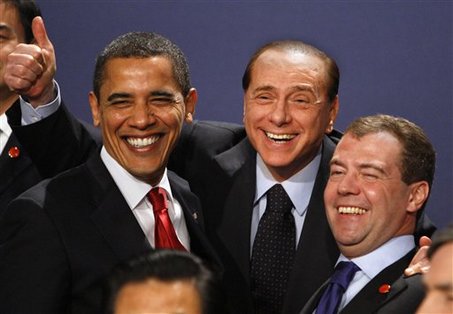
As you will read in the excerpt below, it wouldn't be the first time in recent memory that private bank accounts were raided by a replacement Socialist government in Italy.
--
Potential capital flight out of Italy
Excerpt:
The consensus seems to be that a “technical government” can step in, implement the reforms required by the European Union and reverse the growing credit crunch affecting Italian bonds. This is, in my humble opinion, complete and utter nonsense.
After 10 years out of office, the opposition bloc will do its darn best to regain power through snap elections. And if the center-left were to win, their agenda would consist of the only thing they have known since 1945: increasing taxes on the rich and redistributing the money for their own benefit. There is nothing further from the mind-set of Berlusconi’s opponents than the concept of fiscal restraint.
But even assuming a “technical government” is installed for a few months, it could cause even more damage than a center-left regime. Just ask any Italian who had a bank account — any bank account — on July 11, 1992, and who woke up to find that 0.6% of its balance had been seized overnight by executive order. The stunt came courtesy of then-Prime Minister Giuliano Amato, a leader of the Socialist party under whom many of the current slate of left-of-center politicians were trained and indoctrinated.
And before anybody begins to doubt that such a fiscal maneuver won’t happen again, only Italians who believe in unicorns are dismissing the talk that this time the levy will amount to 2% of account balances above €100,000.
I know many readers will view the above as a piece of conservative ranting, and I will proudly confess to that. But there is a very real financial horror story embedded in the policies proposed by the current opposition bloc. Just as it happened in the early to mid-’70s, tax increases, drive-by account raids and most of all the feelings of vengeance accumulated by the left over their time spent in political irrelevance, are likely to scare capital en masse out of Italian financial institutions just at a time when these banks are least capable of withstanding a run on their deposits.